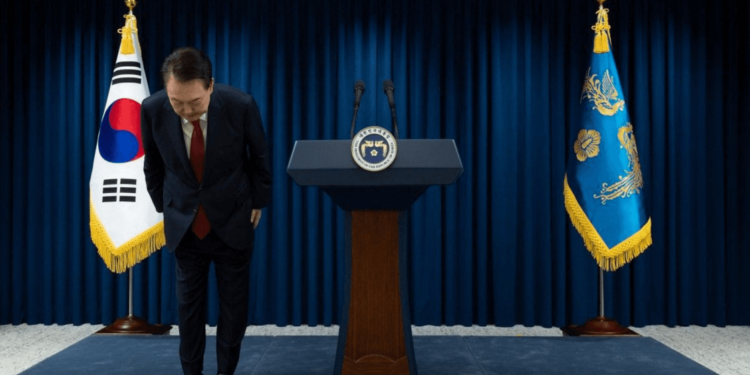South Korean President Yoon Suk Yeol has been impeached by the National Assembly following allegations of insurrection linked to his failed martial law declaration on December 3. In a historic vote on Saturday, 204 lawmakers in the 300-member parliament supported the motion, surpassing the 200 votes required for impeachment.
The impeachment, driven by opposition parties, led to Yoon’s immediate suspension, with Prime Minister Han Duck-soo assuming the role of interim leader. The Constitutional Court now has 180 days to determine the president’s fate, with a unanimous decision required from the six sitting judges to finalize his removal.
The move sparked massive protests across Seoul, where hundreds of thousands rallied both for and against Yoon. Supporters of impeachment cited the need to “safeguard democracy” and condemned Yoon’s alleged disregard for constitutional norms. On the other hand, loyalists defended his controversial decision, asserting that it was necessary under the circumstances.
This impeachment follows growing public disapproval of Yoon, whose approval ratings have plummeted to 11%, with 75% of South Koreans now supporting his removal, according to a Gallup Korea poll. The allegations have also triggered legal scrutiny of his administration, with potential criminal charges looming if the impeachment fails.
Should the court uphold the decision, Yoon would become the second South Korean president to be impeached. However, a precedent exists for reinstatement, as seen in the case of former President Roh Moo-hyun in 2004, adding uncertainty to the final outcome of this dramatic political saga.


































